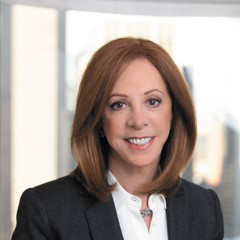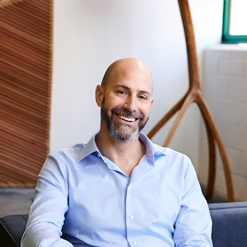What does it mean to lead with purpose? Tamara Lundgren, Chairman, President and CEO of Schnitzer Steel, and Josh Silverman, CEO of Etsy, have each leveraged the power of purpose to lead significant organizations. Brown Advisory’s Stephanie McCormick sits down with Tamara and Josh to explore the connection between purpose and financial performance, and how being purpose-driven helps them navigate our challenging times.
Listen and subscribe to our podcast from your mobile device:
Our podcast guests join the voices of a number of leading CEOs who are employing the power of purpose to become not only first-rate operating businesses but also deliver on a broader social mission. At the beginning of the episode, you will hear from several of those visionary leaders: Indra Nooyi, former Chairman and CEO, PepsiCo; Paul Polman, former CEO, Unilever; Rose Marcario, CEO, Patagonia; and Larry Fink, Chairman and CEO, BlackRock.
Episode Introduction
Stephanie McCormick: It’s such a fascinating question: What is a business for? Who does it exist to serve? As an investor, I’ve seen a radical shift in the way companies have thought about that question over the years. When I was starting out in my career, it was probably true to say that the majority of companies took a narrow view. They thought that their job was do right by shareholders. But even when that’s what companies were saying, I think a lot of people, including me, believed that there was more to a business than that.
This place where we spend so much of our lives, which reflects and shapes our values, which obviously matters to the community around it as well as the people who work for it….did it ever really feel right to say that its only role was to serve its shareholders? I’m Stephanie McCormick, a partner at Brown Advisory, and I’m pleased to say that the debate about purpose has moved on a lot. These days most companies are comfortable with the idea that they have a purpose which goes far beyond their shareholders. One thing we do know is purpose has to mean something in order to be real. At Brown Advisory, our purpose is to raise the future. What do we mean by that? Well, for me, it’s about finding ways in my work with my clients, my colleagues, and our community to make the future better for all three. This is what gets me out of bed, and this is why I think it’s so important for us to have this podcast, because there are big questions out there still and a really lively debate going on. That was true before the coronavirus crisis and it will be doubly true afterwards.
When we talk about purpose, what exactly do we mean? How do we measure if our commitment is carried through into meaningful action? And is the focus on purpose a cost to business, or can it in fact be an advantage?
Guests

Tamara Lundgren
Chairman, President and CEO,
Schnitzer Steel

Josh Silverman
CEO, Etsy
Josh Silverman is Etsy's Chief Executive Officer, leading the company as it builds a platform that empowers creative entrepreneurs around the world. He is also a member of Etsy's board of directors. Silverman’s two decades of leadership experience include growing consumer technology companies and scaling global marketplaces. He previously served as president of Consumer Products and Services at American Express, CEO of Skype, and CEO of shopping.com, and he held various executive roles at eBay. Earlier in his career, Josh co-founded Evite, Inc. where he also served as the company's CEO. He is currently on the board of directors of Shake Shack. Silverman has a deep commitment to community and civic engagement. He currently serves as Chairman of Code Nation, a nonprofit that equips students in under-resourced schools with both fundamental coding skills and professional experiences. He's also a member of the Stanford Business School Management board and was previously on the board of the Lincoln Center Theater.
Host

Stephanie McCormick
Portfolio Manager
Stephanie is a portfolio manager focusing on strategic investment and asset allocation solutions for complex clients. Prior to joining the firm in 2014, Stephanie spent seventeen years as a managing director and portfolio manager at Parkview Wealth Management, an ultra-high net worth family office, based in New York City. While building the family office, Stephanie’s role included managing opportunistic fixed income portfolios, manager selection for all asset classes, and asset allocation for multi-generational clients. Prior to that, Stephanie worked for JP Morgan. After completing the management training program there, she worked in private banking operations in Delaware and as an assistant fixed income portfolio manager in New York. In addition, Stephanie worked in Basel, Switzerland for Swiss Bank Corporation managing fixed income portfolios for private clients.
Background Reading
